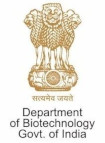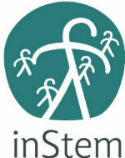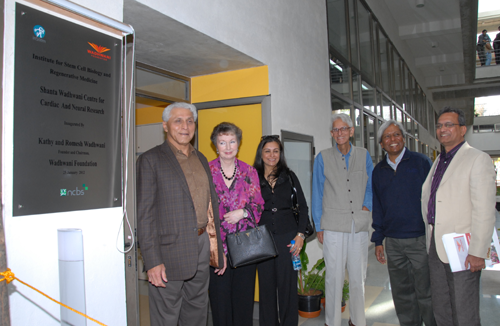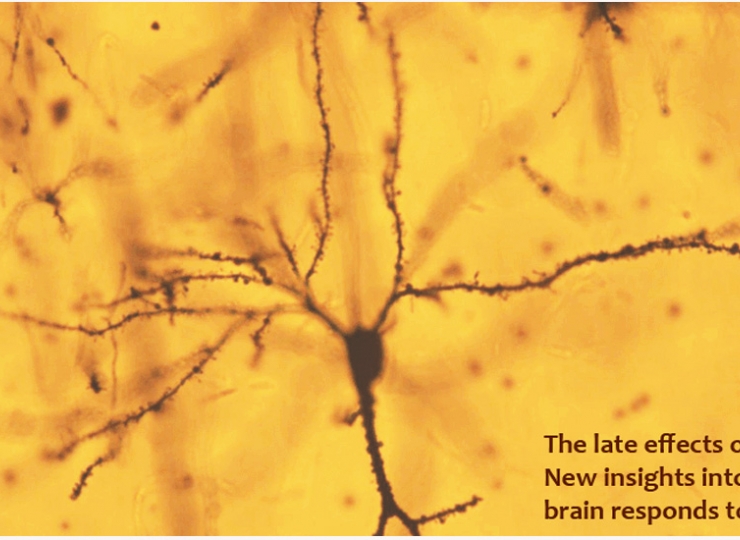|
|
The Shanta Wadhwani Centre for Cardiac and Neural Research (SWCCNR) at inStem focuses on addressing major problems in cardiac biology and neurodevelopmental biology. The Centre was established in January 2012 and is generously supported by a philanthropic grant from the Wadhwani Foundation. The Centre’s broad goal is to support research aimed at understanding regenerative mechanisms operating at the cellular and molecular level in the brain and heart. There are two research programs that operate under the Wadhwani Centre: the Centre for Brain Development and Repair and the program in Cardiovascular Biology and Disease. The Center for Brain Development and Repair is focused on developing a collaborative, comprehensive program to understand the cause, consequence and, finally, treatment of neurodevelopmental disorders. The program aims to develop a core group of clinician scientists and promotes discovery-led translational studies. The program is headed by Prof Sumantra Chattarji, a neurobiologist at NCBS. Profs. Siddharthan Chandran and Peter Kind, from the University of Edinburgh, are associate directors. The active engagement of world-class faculty underscores the collaborative nature of the program and its commitment to excellence. Initial studies will target the underlying mechanisms and treatment of hard-to-treat autism spectrum disorders and intellectual disabilities (ASD/ID). For more information on the Centre and its programs, click here. Inherited heart diseases (cardiomyopathies) affect a large section of the population and are a major public health issue. Genetic testing and understanding of these diseases is needed to effectively treat cardiac disease. The Cardiovascular Biology and Disease program at the Wadhwani Centre focuses its research on inherited mutations that affect the mechanical unit of heart muscle, the sarcomere. Using cutting-edge technologies, this program will also focus on identifying small molecule treatments for mechanisms affected by single or a small group of mutations. The project is headed by 2012 Lasker prize awardee, Dr James Spudich, the Douglass M. and Nola Leishman Professor of Cardiovascular Disease at Stanford University. The strong collaborative spirit of research at inStem is reflected in this program, which draws its faculty from across the world. Currently, research is focused on comprehensive analyses of the sarcomeric proteins (actin, myosin, troponins, tropomyosin) that make up the contractile machinery of the muscle cell. Cardiac function will be analyzed at the biochemical, biophysical, cellular and finally whole-animal levels in a bid to fully understand the mechanisms underlying disease. For more information about the program click here.
|
|
|
|
|
|














